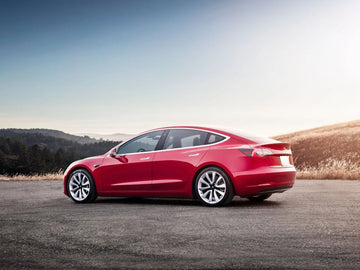Explore the complexities of Elon Musk's influence on Tesla's AI and robotics ambitions. Understand the implications of his current ownership stake and the potential impact on the company's future direction.
There has been a lot of talk regarding Musk’s current compensation package with Tesla. Many investors would agree that Tesla would not have the market capitalization or the influence it has without Musk’s guidance, but it gets more complicated now that his ownership share is lower.
Musk's Perspective:
Musk has been vocal about his desire for a more significant voting stake, stating on X that he would prefer "to build products outside of Tesla" unless he can achieve approximately 25% voting control. This level of influence, according to Musk, would be enough to maintain his guiding hand without overshadowing the collective decision-making process at Tesla.
Tesla's Multifaceted Endeavors:
While Tesla is widely recognized as a leader in the electric vehicle market, it also boasts a robust Energy division and is deeply involved in robotics and AI. The company's contributions to modern technology are vast, and Musk's leadership has been a key differentiator.
The Ownership Stake Debate:
Musk's current ownership stake hovers between 12 and 13 percent, which he implies is insufficient for him to continue propelling Tesla forward. His remarks on X have been met with a mix of support and criticism, with some followers expressing concern over the implications of his reduced involvement.
Public Reaction and Sentiment:
The community's response to Musk's comments has been divided. While many are supportive of increasing his control to ensure Tesla's continued innovation, others are conflicted, pointing out the impact of his Twitter purchase on Tesla's stock value and investor confidence.
The Road Ahead:
The potential implications of Musk's dissatisfaction with his current stake are far-reaching. If Tesla's Board of Directors wishes to retain Musk's leadership, they may need to consider revising his ownership stake and compensation package. However, Musk's current $56 billion compensation package is under review by the Delaware Chancery Court for fairness to shareholders.
Tesla stands at a critical juncture as it navigates the complexities surrounding executive control and shareholder interests. The outcome of these deliberations will not only shape the company's approach to AI and robotics but also set a precedent for corporate governance and executive compensation in the tech industry.
Watch the video:
Frequently Asked Questions (FAQ):
Why is Elon Musk uncomfortable with his current voting share in Tesla?
Musk feels that his current voting share does not provide him with enough influence to continue guiding Tesla's AI and robotics initiatives effectively.
What does Musk believe would be an ideal voting share for him in Tesla?
He has expressed a preference for approximately 25% voting control, which he believes would be influential without being overbearing.
How has Musk's sale of Tesla stock affected his ownership stake and the company?
The sale of billions in Tesla stock to fund his Twitter purchase has significantly decreased his ownership share and raised questions about his commitment to Tesla's future.
What is the general sentiment among Tesla's followers regarding Musk's desire for more control?
The sentiment is mixed, with some expressing support for increasing Musk's control to ensure continued innovation, while others are concerned about the implications of his reduced involvement.
What is the current status of Musk's $56 billion compensation package?
The package is under scrutiny by the Delaware Chancery Court, which is examining whether it was fair to Tesla's shareholders.














































